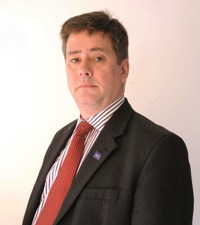
CPT Scotland has asked the Scottish Government to reconcile the sizeable reduction on BSOG for urban operators and its claim that a 1% fares increase would suffice, which it describes as “irresponsible”, and is awaiting a response.
Paul White, public affairs executive for CPT Scotland, told CBW that transport minister Keith Brown’s claim that the forthcoming changes to the BSOG scheme only justify an increase in fares of about 1% “demonstrates exactly the sort of lack of understanding of the bus industry which would have led the minister to propose the changes to the scheme in the first place”.
Paul said altering the basis of the scheme from a pence per litre to a pence per kilometre model creates winners and losers in rural and urban areas (CBW1022) and the new model fails to take account of the fuel used on congested, busy stop-start urban services, which carry the vast majority of Scotland’s passengers.
The TAS National Fares Survey 2011 indicated an average operator can expect BSOG to account for approximately 10% of revenue, pointed out CPT Scotland. TAS also highlighted due to the constraints on concessionary scheme budgets and the set nature of contract payments, the only real method to recoup the loss of BSOG revenue is through the farebox.
“Mr Brown’s statement also makes no allowance for RPI which is currently around 4.8%,” continued Paul. “It also comes as Edinburgh Council increase city parking charges by 8% and parking permits by 5%.
“Operators have to react to their constrained economic circumstances, just like the public sector has. This may mean some urban operators will have to consider making marked increases to their fares structures.”
CPT Scotland said it believes it is “irresponsible and misleading” for the minister to make claims regarding fares increases across the industry as a whole while clearly not having a proper grasp of the impact of the BSOG changes.
“Hopefully the newly formed Bus Stakeholder Group suggested by Mr Brown will give CPT Scotland the opportunity to highlight the many unintended consequences of the changes to the BSOG scheme and its budget,” urged Paul.
“The Scottish Government needs to understand why it is naïve to assume cutting BSOG for the operators who carry most passengers by about a third would not have repercussions for fares levels or service cuts.”


